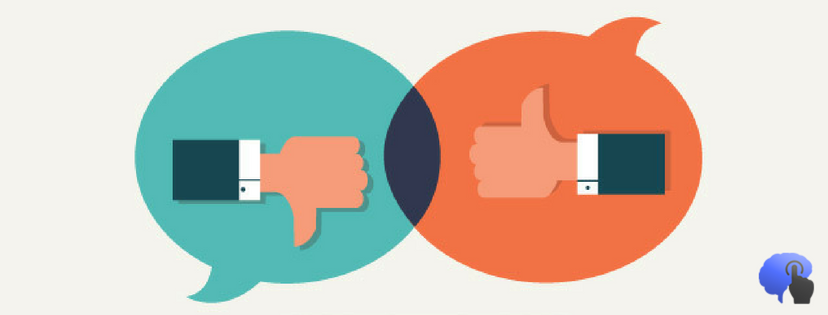
This post first appeared on enfoquederecho.com in Spanish.
– Why do we need Laws?
– We need Laws in order to ensure that citizens are treated equally and fairly.
At least, that could be a possible short and straight-forward answer to this question. But what defines what is fair or which actions are morally right?
If you ask different people, they would give you different answers on what fairness and equality is, especially when we take into account unpredictable and complex factors and external forces such as their own character, the society they live in or their religion.
The answer to the opening question might come from an upcoming but very promising science which has changed the basic assumptions of standard Economics on how rational humans behave when it comes to Decision Making. This science is called Behavioral Economics.
The Ultimatum Game Experiment
Behavioral Game Theory is a theory which is based on experiments about how people react in different situations with regard to feelings, like fairness and reciprocity.
Let’s examine one of the most famous experiments of Game Theory.
In short, there are 2 players in this game. The first one, ‘the allocator’, is endowed with a sum of money (let’s say 10$) and she has to offer some of her money (more than 0$) to the second player, ‘the recipient’.
Now, the recipient has to make a decision, either to accept or reject that offer. The rules are simple, if the offer is accepted, both players take the money they won from the game, otherwise they both lose them.
Based on the standard economic theory it would be rational for the recipient to accept any offer because the gain would be always higher than if he rejected the offer. Moreover, it would be rational, as well, for the allocator to offer the smallest possible amount to the other player (say 1$).
Surprisingly (or not), based on numerous experiments, usually neither of the players behave that way!
Thus one of the basic assumptions of standard Economics, homo economicus (people are fully rational and act only upon their self-interest), is violated by this game.
This possibly happens due to 3 reasons:
- According to Herbert Gintis (2006), the allocator has a fear of rejection (on his offer) which makes him more self-protective and less profit-seeking.
- People prefer fairness and resist inequality. They are willing to forego a gain in order to prevent another person from receiving a superior reward. According το Ernst Fehr and Klaus M. Schmidt (1999) this phenomenon is called Inequity Aversion.
- According to Herbert Gintis (2009), human beings are cooperative by their nature and they tend to be altruistic cooperative in the game, as long as the other player acts in an altruistic way.
These findings are directly connected with another term of Behavioral Economics, Reciprocity. According to Ernst Fehr and Simon Gächter (2000):
“Reciprocity means that in response to friendly actions, people are frequently much nicer and much more cooperative than predicted by the self-interest model; conversely, in response to hostile actions they are frequently much more nasty and even brutal.”
Conclusion
Do those cooperative instincts of humans overcome other basic instincts like self-interest or feelings like anger?
Now, imagine a world guided only by the (partly) flawed human behavior, which changes according to their self-interest. It would probably be chaos.
That is what Laws are for; to help people divert from their gut feelings which are based on their own self-interests while they encourage a more altruistic human nature which has to do with fairness and equality.
To sum up, irrationality isn’t a bad thing. It totally depends on how behave in certain situations based on our individual and social motives.
Are Laws finally fulfilling their purpose?
What do you think?
Chronis Lalas, Founder and Director of Nudge Unit Greece
~Explaning Behavioral Economics Simply~
References
ANDREW T. STEPHEN AND MICHEL TUAN PHAM: On Feelings as a Heuristic for Making Offers in Ultimatum Negotiations. Columbia University
[Online] Available from:
papers.ssrn.com/sol3/papers.cfm?abstract_id=1131083
DANIEL KAHNEMAN, JACK L. KNETSCH AND RICHARD H. THALER (1986): Fairness and the Assumptions of Economics. The Journal of Business. University of Chicago
[Online] Available from:
www.anderson.ucla.edu/faculty/keith.chen/negot.%20papers/KahnKnetThal_FairEcon86.pdf
HERBERT GINTIS (2006): Behavioral Game Theory and Sociology.
[Online] Available from:
www.umass.edu/preferen/gintis/behavi~1.pdf
ERNST FEHR AND KLAUS M. SCHMIDT (1999): A Theory of Fairness, Competition, and Cooperation. The Quarterly Journal of Economics. The MIT Press.
[Online] Available from:
pareto.uab.es/prey/Fehr&Schmidt1999.pdf
HERBERT GINTIS (2009): The Bounds of Reason Game Theory and the Unification of the Behavioral Sciences. Princeton University Press.
[Online] Available from:
ERNST FEHR AND SIMON GÄCHTER (2000): Fairness and retaliation: The economics of reciprocity.Journal of Economic Perspectives.
[Online] Available from:
www.econ.uzh.ch/dam/jcr:ffffffff-9758-127f-ffff-ffffa51642e9/2000FehrGaechterFairnessRetaliation.pdf
